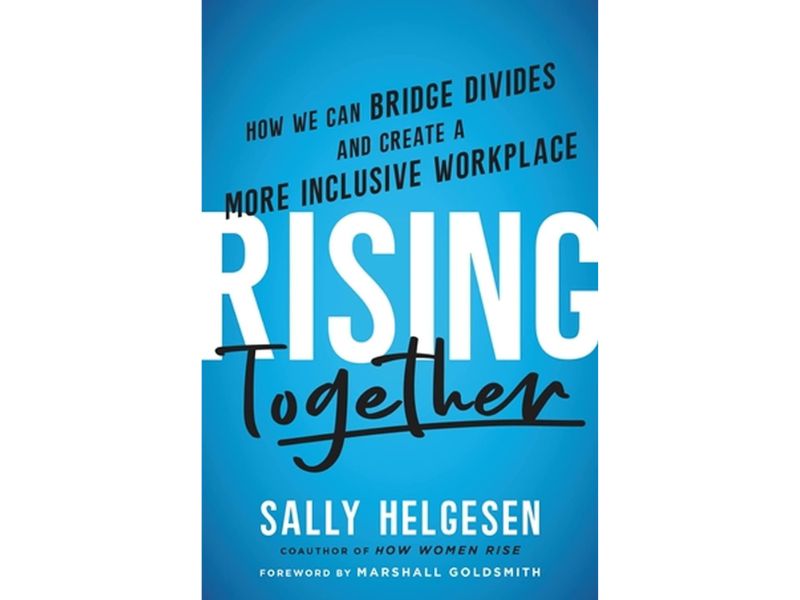 Just like the food you eat has a shelf life, so does your career. And just like how food is not at its best when it has passed its shelf life, when you pass the shelf life in your career, you too are no longer at peak performance.
Just like the food you eat has a shelf life, so does your career. And just like how food is not at its best when it has passed its shelf life, when you pass the shelf life in your career, you too are no longer at peak performance.
But sometimes it can be difficult to recognise when it is time to move on, particularly when you’re cruising along. Sometimes it is not until a crisis, such as organisational change and restructuring that poses a threat to your role, that you are then forced to make a change.
But why wait until you are forced to make a change? Because then you are at your most vulnerable and are more likely to make decisions and choices out of desperation, rather than what you really want to do.
Why not quit while you are ahead and before your shelf life expires. If you think that your career shelf life may be due to expire soon, here are 7 signs and if you can identify with them, you may want to think about whether it is time for you to move on.
1. Clock Watching
You constantly watch the clock, wishing the time away. You can’t wait until it is 5pm and you are out that door. In fact you’ve probably switched off mentally a good 30 minutes before your contracted finish time.
If you are contracted to work until 5pm, it means just that, working until 5pm and not coat on, out the door and half way to the train station at 5pm.
Constant clock watching, wishing the day would hurry up and end, or thinking that Friday can’t come soon enough means that you are also wishing your life away. Life passes us by too quickly as it is without wishing it away in this way.
If this is you, do yourself a favour and find a job that you love.
2. Monday Morning Blues
You don’t just have the Monday morning blues on a Monday but you have them Tuesday, Wednesday, Thursday and Friday. You spend your Sunday nights filled with dread at the thought of getting up for work the following day.
How many times do you go on holiday and as you get near to the end of your break, start worrying and fretting about going back to work?
If you loved the work that you did, you would not feel this way about it when you are away from it.
3. The Role no longer challenges you
You have learnt all that you can learn, developed as much as you can in what you’re doing and the role no longer challenges you. If you find yourself in this situation, staying too long like this will make you lose motivation, become bored and distracted, if it has not already done so.
Because of this you won’t give your best to the role and may even be accused of underperforming. But it is not simply that you are underperforming, it is that you are no longer being challenged or stimulated by the work that you do.
We need challenge to enable us to grow and develop personally. And if we don’t grow and develop, it is easy for us to become stuck in a rut. Once stuck in a rut, it is then harder to get out. You lose sight of your skills, lose your confidence and you lose your sparkle. Stepping out of the comfort zone then becomes scary.
4. You keep getting passed over for promotion
You’ve applied for promotion a few times now and keep getting knocked back. You believe that you can perform at the next level but no one will give you the opportunity. For some reason those above you fail to recognise just what you are capable of.
Take a long hard look at yourself. Maybe it’s time to reinvent yourself, develop new skills and seek new challenges. If you are not getting the opportunities you want in the organisation you are in, it is time to look elsewhere. Find somewhere that will enable you to grow and develop and maximise your potential.
5. The slightest little thing frustrates you
Your boss, your colleagues, the customers… the slightest little thing about the organisation frustrates you. You constantly moan to friends and family about how horrible it is for you but yet you don’t do anything about it. If you are not careful you will become a ‘victim’ and end up a bitter and miserable woman.
You can’t change people and unless you are in a position of influence, it will be difficult to change the environment. But what you can do is remove yourself from the environment if you are finding it toxic and stifling.
6. You’re taking sickies when you’re not sick
You are taking more and more time of sick when there is nothing really wrong with you. It is just that you can’t be bothered to go into work or you have something that you deem much more exciting/interesting/important. Contrary to the age old myth, you don’t get allocated a certain number of sick days to take in a year.
If you have to pretend that you are sick because you don’t want to go into work, something is not right. Would you not rather be doing something that you love and enjoy? If you were, taking false sickies would become a thing of the past.
7. You think you can do a better job than your boss
If you think that you can do a better job than your boss, perhaps it is time to move on and find a role which you can utilise all your talents and get recognition for.
If you think that you can do a better job than your boss, you will start to lose respect for them. You then run the danger of how you feel about them being reflected in the way you act and behave towards them.
Your boss is your boss for a reason. The reason is because someone believed in them and deemed them capable of doing the role. So whether you are right or wrong you still need to respect that fact. But if you find this difficult to do, move on.
If you have passed your shelf life in your current role and are no longer challenged or motivated by what you do, don’t stay getting more and more miserable. If you want to be fulfilled and love what you do, it is time for you to move on.
Author Bio
 Carol Stewart, is a Personal Development, Career, Business Coach, UK top 50 Business Adviser and founder of . She works with women who are unhappy at work but are too scared to do anything about it. She helps them to develop the confidence to make a career move and find something that they love. This could be a complete career change, it could be climbing the corporate ladder and smashing through the glass ceiling, or it could even be exiting the corporate environment and setting up their own business.
Carol Stewart, is a Personal Development, Career, Business Coach, UK top 50 Business Adviser and founder of . She works with women who are unhappy at work but are too scared to do anything about it. She helps them to develop the confidence to make a career move and find something that they love. This could be a complete career change, it could be climbing the corporate ladder and smashing through the glass ceiling, or it could even be exiting the corporate environment and setting up their own business.
Carol herself made a significant career change in 2011 when at the age of 44 she left the organisation she had worked in for 28 years, went to university and completed an MSc in Coaching Psychology whilst setting up her own business.
She is also a Fellow of the Institute of Leadership and Management and a Member of the Association for Coaching.
Carol’s free ebook ‘5 Steps to Pursuing Your Passion at Mid-Life – A Guide to Designing a Career You Love’ can be downloaded at http://aboundingsolutions.com/ . This book is suitable for anyone who wants to pursue work that they are passionate about regardless of age.








